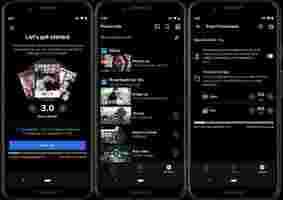Microsoft looks poised to dominate the quantum computing industry
Microsoft Azure recently announced that its quantum computing research teams had invented “a new kind of qubit” based on elusive, never-before-demonstrated properties of physics. According to the Redmond company, this will allow it to build scalable quantum computers capable of solving the hardest problems facing humanity.

So, is this a breakthrough for the field or just an attempt to lean in to the marketing zeitgeist surrounding quantum computing?
To sort out the answer, we’ll need to take a look at Microsoft’s quantum computing department, its history, and what it’s actually trying to accomplish.
A full stack solution
Microsoft’s probably not the first name that comes to mind when you think about the quantum computing industry. Google had its monumental time crystals breakthrough last year, IBM was the first big tech entity to develop consumer-facing quantum computing systems and it’s currently engaged in a tit-for-tat with Google , and D-Wave, a quantum company that recently went public , has been building quantum computers for over 20 years.
In order to carve its own lane, Microsoft’s chosen to pursue a different path than all of its competitors. The “new kind of qubit” the Azure team says its developed is called a topological qubit and, as far as we know, its never been demonstrated before.
According to a company blog post :
The team responsible for the breakthrough says topological qubits represent the fastest path to industrial-sized quantum computers.
What this tells us, is that Microsoft’s clearly eyeing the quantum computing market and envisioning itself as the global leader.
While Microsoft certainly isn’t a newcomer to the quantum computing industry, it currently only offers limited quantum services to select Azure partners. Prior to the topological qubit breakthrough, its quantum ambitions were a bit fuzzy in the crystal ball.
But, now, it’s clear that Microsoft intends to develop a full stack quantum computing solution featuring a gate-based system harnessing one million qubits.
Quantum ambition
It’s impossible to determine what one million topological qubits will be capable of in Microsoft’s future quantum computers . The field is too young and just a few months ago the technology the company is using was considered hypothetical.
And the fact that Microsoft is able to go from theoretical research to publishing a blog post outlining a business path for the tech is more of a testament to the speed of business than the state of the research.
However, it’s clear that Microsoft is throwing its full weight behind the technology and there isn’t much room for prognostication when it comes to developing and scaling quantum systems. These systems require hundreds of millions in investments to build and millions to maintain and operate.
It’s a safe bet that Microsoft’s ready to take on all comers if it actually builds hardware capable of scaling one million topological qubits.
As to how long this could take, the team says it’s on “more of an engineering path” now that the fundamental technology has been demonstrated.
That tells us we’re likely within a decade of seeing Microsoft’s ambition come to fruition.
But wait there’s more
However, it’s obvious that Microsoft isn’t interested in waiting around until 2030 or beyond to get down to business. To that end, it’s planning to offer access to a 1,000 qubit processor by the end of 2023.
This, however, won’t be the topological qubit paradigm Azure just invented. Instead, the company formed a partnership with Pasqal, a company who creates hardware to run yet another kind of quantum technology called “neutral atom-based” quantum processing.
Credit: Pasqal
Per a Microsoft press release , Dr. Krysta Svore, Distinguished Engineer, VP Quantum Software of Microsoft, described the partnership as a way to bring quantum technologies to both companies’ clients immediately:
The partnership with Pasqal shores up Microsoft’s biggest weakness in the quantum industry by giving it a mid-term solution to fill the gap between 2023 and whenever the future arrives in the form of a massively-scalable quantum computing system.
Winner takes… some
As to whether Google’s time crystals, D-Wave’s new gate-based solutions, IBM’s iterative approach, Microsoft’s new topological qubits, or a dark horse technology will ultimately prevail, that’s anyone’s guess.
But it’s unlikely we’ll end with multiple viable approaches. Eventually it’ll make more sense, financially speaking, for hardware manufacturers to get on the same page. The next ten years should set the stage for the ultimate reckoning.
However, quantum computing is not a zero sum game. Microsoft’s poised to take a dominant share of the greater market but it’s unlikely any one company will end up eclipsing the competition.
Much like the artificial intelligence market, quantum computing requires bespoke solutions on a case-by-case basis. IBM, Google, D-Wave, and Microsoft won’t be lining store shelves with all-purpose quantum computers any time soon. They’ll be vying for massive partnerships featuring lucrative, long-term contracts.
Each company will have to rely on its corporate strengths to find their unique path to potential prominence. And for Microsoft, that means connecting partners through its Azure ecosystem and nabbing high-paying government contracts.
From where we’re standing, Microsoft’s apparently caught up to the competition. That doesn’t mean it’s guaranteed a victory — there are no guarantees in theoretical physics — but it’d be silly to count out the house that Bill Gates built in any technology race.
Neural’s take: The Pasqal partnership puts it in direct competition for the top spot today and Azure’s research teams make it a favorite for the future. We’d give Microsoft the edge over Google and IBM in a marathon due to the Redmond company’s no-drama approach to landing big ticket government projects.
9 reasons why you’ll never become a Data Scientist
Disclaimer: This story is not meant to discourage you. Rather, it should serve as a long hard look in the mirror.

So you’re enthusiastic about Data Science, you’ve read a couple dozen blog posts and completed a few online classes. Now you’re dreaming of making this your career. After all, it’s the sexiest job of the 21st century, according to Harvard Business Review .
But despite your enthusiasm, Data Science might not be for you. At this moment in time, you’re holding too many illusions and false stereotypes.
Now, your task is simple: Remove the things that hold you back! And you’ll be surprised at how fast you move forward.
1. You think your degree is enough
You have a master’s degree in a quantitative field, or maybe even a Ph.D. Now you want a head start in Data Science.
But have you ever used a shell before? Have you felt the intimidation that can come from command-line interfaces when you stumble upon errors? Have you ever worked with big databases — on the scale of Terabytes?
If you answer one of these questions with no, you’re not ready yet. You need some real-world experience and build some real projects. Only then will you encounter the type of problems that you’ll face every day as a Data Scientist. And only then will you develop the skills to solve them.
Congratulations on your degree. Now get cracking on the hard work.
2. You lack passion
Have you ever invested an entire weekend in a geeky project? Have you ever spent your nights browsing GitHub while your friends were out to party? Have you ever said no to doing your favorite hobby because you’d rather code?
If you could answer none of the above with yes, you’re not passionate enough. Data Science is about facing really hard problems and sticking at them until you found a solution. If you’re not passionate enough, you’ll shy away at the sight of the first difficulty.
Think about what attracts you to becoming a Data Scientist. Is it the glamorous job title? Or is it the prospect of plowing through tons of data on the search for insights? If it is the latter, you’re heading in the right direction.
3. You’re not crazy enough
Only crazy ideas are good ideas. And as a Data Scientist, you’ll need plenty of those. Not only will you need to be open to unexpected results — they occur a lot!
But you’ll also have to develop solutions to really hard problems. This requires a level of extraordinary that you can’t accomplish with normal ideas. If people constantly tell you that you’re off your rocker, you’re heading in the right direction. If not, you’ll need to work on your craziness.
This, of course, requires some boldness. Once you let out your eccentricity, some people will scratch their heads and turn their back on you. But it’s worth it. Because you’re being true to yourself. And you’re igniting the spark of awesomeness that you need as a Data Scientist.
4. You learn from textbooks and online classes
Don’t get me wrong. Textbooks and online classes are a great way to get started. But only to get started! You need to work on real projects as soon as possible. Of course, there is no point in building a Python project without being able to code a single line in Python. But as soon as you’ve built a modest foundation, get active.
Learning by doing is key. Start building your GitHub portfolio. Take part in some Hackathons and Kaggle competitions. And blog about your experiences.
Everybody can do textbooks. To be a Data Scientist, you must do more.
5. You think you can stop learning at some point
You’ve subscribed to a couple of online courses on Data Science and are reading a few textbooks. Now you think that once you’ve mastered those, you have learned enough to break through in Data Science. Wrong. This is yet the beginning. If you think you’re learning a lot now, think about how much you’ll be learning in three years.
If you end up as a Data Scientist, you’ll be learning ten times more than you are now. It’s an ever-changing field where new technologies are constantly needed. If you stop learning once you’ve landed your job, your trajectory is going to go from a beginner in Data Science to a Data Scientist that sucks.
If you want to excel in Data Science (and if you’re reading this, you do), you need to face the fact that your learning curve will get steeper over time. If you don’t enjoy learning Bigly, stop dreaming about being a Data Scientist.
6. You don’t have expertise in another domain
So you know a thing or two about Computer Science, and your math skills ain’t that bad. Will you be able to land a job in Data Science?
No, you won’t. Your skills in IT and math are essential, but not enough to set yourself aside from all the other Data Science enthusiasts. Data Scientists work in all kinds of companies and all kinds of industries. To deliver key insights for your clients, you need knowledge about their domain.
For example, Kate Marie Lewis from the story below landed a position in Data Science in six months. But what made the difference was that as a neuroscientist, she had domain knowledge in healthcare.
Which domain are you good at? In which fields do you have experience? Try to position yourself as a specialist in your domain, and less like a general Data Scientist. This is how you really land a job.
7. You’re lacking business skills
So you’re more the analytical type. You love numbers and quantitative analyses, and you hate soft skills and human interaction.
This doesn’t make you a good Data Scientist, my friend. Soft skills are important even in a quantitative job. Soft skills are what ultimately makes you rock that job interview.
Of all the soft skills that you could acquire, it’s your business skills that need a boost. Remember that your clients are business leaders. And as such, they need people who understand business. Only this way can you generate insights that add value to your client.
8. You don’t have meaningful connections
You want to land a job in the field but you don’t know any fellow Data Scientists? It’s time to get cracking, my friend.
Go to meetups. Join the relevant groups on LinkedIn. Get to know people on Hackathons. Follow the right people on Twitter. Meet your fellow contributors on that GitHub project. Do something exciting! Like with any job search, 90% of your success isn’t determined by how vast your skills are. It’s determined by who can provide references for you, and who can give you an introduction.
If your LinkedIn connections are limited to your mom and your co-workers in that dead-end job, it’s about time to pimp your profile. If your follower count on Twitter is a single handful, get tweeting. If your blog has no readers, try SEOing and cross-platform marketing.
The connections will come. But you need to get cracking first.
9. You don’t love the dirty work
You’ve heard all the buzz about Machine Learning and Artificial Intelligence. You think that Data Science could open the door to working with cutting-edge technologies.
Maybe you will. But I guarantee you that you won’t do it more than 5% of your time.
Once you’ve landed your dream job, you’ll spend the largest part of your time cleaning data. Congratulations, you just found a new job as a janitor!
If you don’t love that, go home — you shouldn’t be reading this post. If you still want to be a Data Scientist after reading all this, it’s about time that you fall in love with the dirty work.
Data Science is not a career option. It’s a vocation
Data Scientists are highly sought-after individuals — which makes a lot of people dabble with it. But to get a position in the field, dabbling is not enough. You need to put in the hard work.
If you’re still convinced about becoming a Data Scientist after reading this story, congratulations. You might be on a very good path.
If at this point you’re unsure about becoming a Data Scientist, identify the biggest reasons for your doubts. Then start working on those points. You can do this!
This article was written by Ari Joury and was originally published on Towards Data Science. You can read it here.
Netflix can now automatically download videos it thinks you’ll like
Netflix today unveiled a new way of binging on TV shows while you’re offline.

The streaming giant has launched a new opt-in feature that automatically downloads new content the app infers you’ll like.
“Downloads For You” uses data from your viewing history to find new shows and films that match your tastes. It then downloads the content to your mobile device when it’s connected to a Wi-Fi network.
“Whether you’re a comedy fan stuck on a long car ride or a rom-com lover without internet, we do the work so there is always something new waiting to entertain and delight you,” said Patrick Flemming, Netflix’s Director of Product Innovation, in a statement.
The feature is currently only available on Android, but Netflix will soon test it on iOS.
The feature is an addition to Netflix’s Smart Downloads , which automatically deletes a downloaded episode after you’ve watched it — and then downloads the next one.
You can access the new feature by going to the Downloads tab on your mobile device and turning on Downloads For You. You can then choose how much content you want downloaded (1GB, 3GB, or 5GB).
The more storage space you permit, the more recommendations Netflix will download.


I don’t have much need for downloads while I’m largely confined to my apartment, but if I ever get to once again commute to work (urgh) or travel for pleasure (yay!), the feature could prove handy.
It could also be a useful tool for people in places with unreliable internet connections.